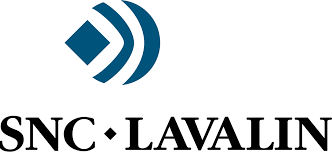21 February 2019
Canada passed the Corruption of Foreign Public Officials Act in 1998 because of an OECD convention that had deemed bribery illegal. For a decade after the legislation the successive liberal governments largely ignored the legislation as they deemed bribes were needed in developing countries to boost Canadian exports.
After the Harper Conservatives came to power in 2006, the tide turned against corruption, with companies such as SNC-Lavalin being prosecuted.
Former SNC-Lavalin CEO Pierre Duhaime had pleaded guilty to a charge of a bribery scandal around the construction of a $1.3-billion Montreal hospital. This is totally a local contract with no exports involved. Obviously SNC took advantage of the laxity of the implementation of the law to make undue profits by bribing government officials. The former hospital manager who took the bribe of $10 million was sentenced to 39 months in prison.
SNC-Lavalin, which depended heavily on government contracts was prevented from doing business with the federal government for 10 years under the existing law. It was also debarred from World Bank contracts.
Under the concept of Deferred Prosecution Agreement (DPA) in which a company and its executives promise to clean up their act, the company agrees to pay a fine, and all are spared a criminal record. Now SNC is lobbying for DPA to be applied in its case.
SNC claims that it has cleaned up the system and that it should not be penalised for the past misdeeds. It began a campaign by taking advertisements in four of Canada’s most influential newspapers appealing for public support.
Now the Trudeau government is willing to apply DPA to SNC. This is to prevent the company from facing a break-up or hostile takeover and not to leave the company’s 10,000 employees in the lurch. A consortium that includes SNC-Lavalin has won a contract for Toronto’s $4 billion Eglinton light rail transit contract. This is second large win in a week for the embattled Montreal-based engineering and construction company. The federal government has selected a different SNC-Lavalin partnership to build the new Champlain bridge in Montreal for more than $3 billion. This shows that it is not easy to find a suitable contractor who has the capacity to handle such big contracts.
The DFA proposal resulted in a scandal that caused the resignation of Prime Minister Justin Trudeau’s principal secretary, Gerald Butts, amid allegations the Prime Minister’s Office pressured its former attorney general, Jody Wilson-Raybould, to resolve criminal charges against SNC-Lavalin by a deferred prosecution agreement.
Jody Wilson-Raybould, a Canadian federal justice Minister, resigned her ministerial post without giving any reason but due to pressure from the prime minister’s office. Globe and Mail newspaper reported that she had refused to ask prosecutors to make a deal that would have suspended prosecution against SNC-Lavalin.
DPA exists in USA and UK. Singapore and Canada are in the process of adopting DFA. DPA gives a second chance to company embroiled in bribery and money laundering crimes.
DPA is a kind of leniency program. According to FCPA blog, Leniency programs under competition law are in place in more than sixty jurisdictions to date, ranging from the United States, to the European Union, Brazil, Mexico and Japan, among others. Leniency program proliferation raises opportunities for international cooperation and for levelling the global playing field.
The critics of DPA argue that If the government approves the DPA, it could open the door for corruption. They say that DPA is a cheap option for prosecutors and a soft option for companies. DPAs as a stand-alone measure without accompanying reforms may be harmful for corruption eradication. Transparency International notes several advantages of DPAs. It also says that the use of DPA settlements is becoming the use of such settlements is becoming increasingly controversial as they can fuel an impression of impunity for corrupt acts (when the offenders can afford the fines), undermine effective accountability and sanctioning, create a two-tier justice for companies and fail to deter economic crimes by protecting companies from collateral consequences, such as reputational damage and debarment.
It should also be noted that the government reserves the right to prosecute if the offender fails to meet the conditions of DPA.















